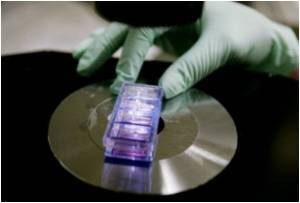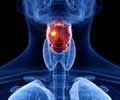
Many kidney disease patients on dialysis suffer from other illnesses that require them to undergo radiation procedures for diagnosis and treatment. This means patients can receive high doses of radiation over an extended period of time, which can increase their risk of developing cancer. Marco Brambilla, PhD, Andreana De Mauri, MD (University Hospital "Maggiore della Carità ," in Novara, Italy), and their colleagues followed a group of 106 dialysis patients for an average of three years and calculated their radiation exposure from hospital records.
On average, patients received the equivalent of approximately 1000 chest radiograms per year. Computed tomography (CT) scans accounted for 76% of the total radiation dose, while accounting for only 19% of the total number of radiological procedures. The researchers found that 22 patients received low doses of radiation each year, 51 received moderate doses, 22 received high doses, and 11 received very high doses. Seventeen patients were exposed to radiation at levels associated with a substantial increase in risk for cancer-related death. The investigators also noted that radiation doses were higher in younger patients and in patients on transplant waiting lists.
"These findings emphasize the need to begin tracking at least the CT-related exposure to develop and implement alternative strategies to reduce patient-specific radiation burden. The retrospective nature of this study does not allow us to draw conclusive inferences about the percentage of CT studies that could have been avoided. However, the significant number of examinations that resulted in non-notable findings or in negative results-about 60%-points toward the need of a more stringent process of justification of CT referral," said Dr. Brambilla.
Study co-authors include Doriana Chiarinotti, MD, Roberta Matheoud, PhD, Alessandro Carriero, MD, and Martino De Leo, MD (University Hospital "Maggiore della Carità ," in Novara, Italy).
In reviewing this study in an accompanying editorial, David Pickens, PhD and Martin Sandler, MD (Vanderbilt School of Medicine) noted that it is an example of what is often seen in patient care settings where individuals of varying clinical experience order diagnostic imaging procedures. "In general, certain types of procedures are often overused because they are relatively easy to perform and a large amount of information is provided very quickly," they wrote. "The particular example described here, that of CT scans, can produce substantial cumulative doses of radiation when used multiple times." They noted that radiation appropriately used and calibrated provides great benefit to patients, but proper knowledge of procedures, dosage, effects, alternatives, and expected results is imperative to avoid potential overuse.
Advertisement
The article entitled, "Estimated Radiation Exposure from Medical Imaging in Hemodialysis Patients," (doi 10.1681/ASN.2010070784) and accompanying editorial, "Radiation Exposure in Dialysis Patients," (doi 10.1681/ASN.2011010105) will appear online at http://jasn.asnjournals.org/ on February 24, 2011.
Advertisement
Founded in 1966, and with more than 12,000 members, the American Society of Nephrology (ASN) leads the fight against kidney disease by educating health professionals, sharing new knowledge, advancing research, and advocating the highest quality care for patients.
Source-Newswise














